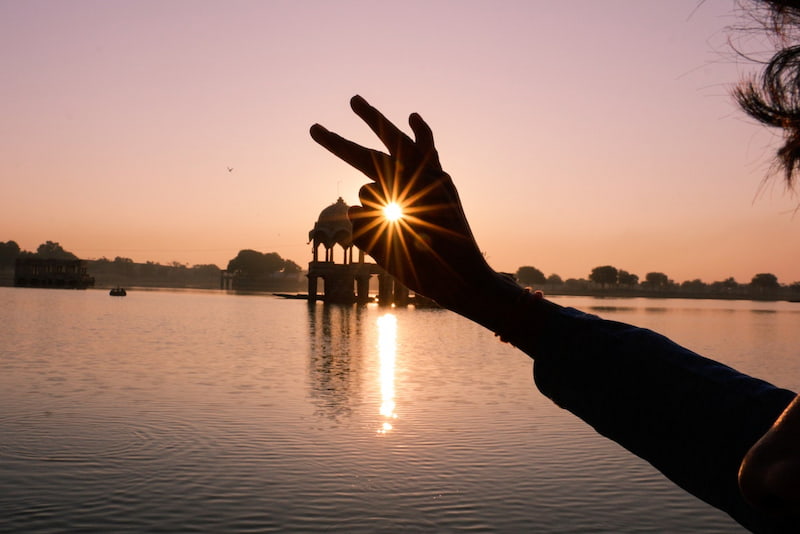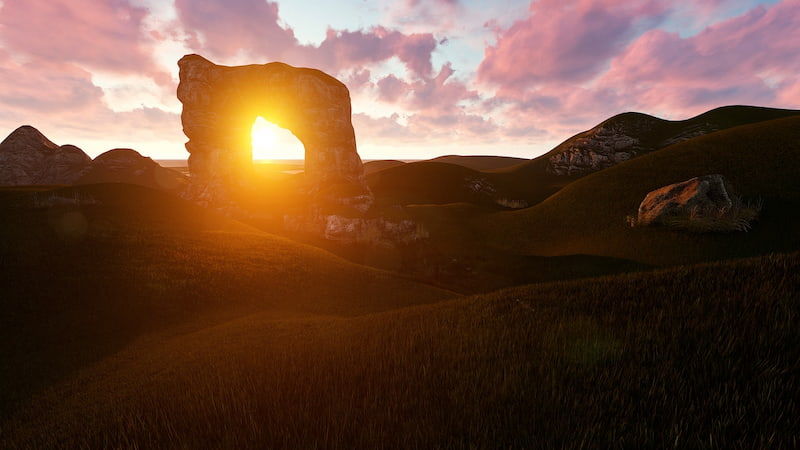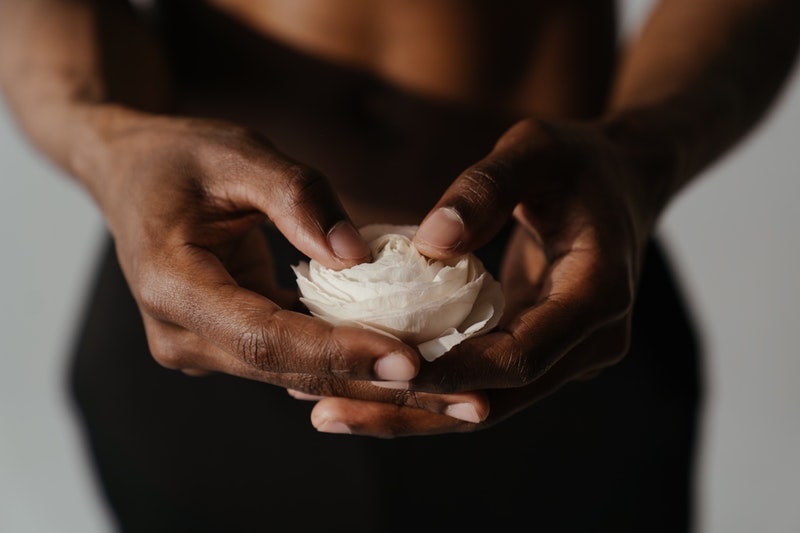Guest writer for Wake Up World
Your pain, your darkness, your greatest fears and shadows are the doorways toward your spiritual enlightenment.
Within the cobwebs, the dust, the dirt, the dank and rancid confines of your deepest pain, is the key to everything you’ve been searching for.
But most of us don’t understand that the only way around pain is through the pain.
[pro_ad_display_adzone id=”110028″]
Our age-old conditioning whispers in our ears that happiness can only be found when we improve this bit of ourselves, change that person, move to this place, get that job, reach this age, obtain that degree … and on and on, ad infinitum.
And there is a certain addictive quality to playing the happiness game. There’s always a new thrill to pursue, a new drama to play out, a new thing to obtain. Quite simply, the pursuit of happiness gives you something to do, so it makes you feel like you’re spending your time meaningfully.
In fact, most of our behavior is driven by the drive to chase happiness.
We chase the “ideal” relationship because we feel it will complete us. We chase higher-paying jobs and more money because we believe it will bring us more comfort and security which we believe will give us happiness. In wealthy countries, we buy things we don’t need which we believe will make us happy.
But once we reach or obtain what we’ve been pursuing, what happens? How long do we remain happy? Sure, we may feel happy for a week, a month, or even a single moment. But then the feeling passes, and we’re on the treadmill again, peddling frantically for the next “source” of happiness.
And the sad thing is that we often enter this exhausting rat race completely unconsciously and impulsively.
I think it’s fair to say that the search for happiness is the most common and pathological addiction we all share these days, and indeed, since the beginning of the human race.
By the way:
I share some quick thoughts about this topic in the video below:
Why Chasing Happiness Makes You Unhappier (and Why The Cure For Pain is in the Pain)

The cure for pain,
is in the pain.
— Rumi (in The Essential Rumi)
For as long as I can remember, there has been a type of unhappiness in my life known as fear – that is, fear of God, fear of my parents, fear of my teachers, fear of other people, and ultimately, fear of life.
Eventually, I discovered that no matter how much you run from pain or pretend that it isn’t there, it always quivers close by your feet like a shadow.
No matter how dedicated you are to chasing happiness, it always seems to evade you.
Why? By chasing something, you’re reinforcing the disempowering notion that you desperately need something to be happy, whole, and at peace. By going in search of joy, you’re forgetting the glimmers of bliss that are already here, right now, in your life (however small) – and instead, you overlook the simple delights for something “bigger and better” and pursue some ideal of what happiness looks like.
While learning to be grateful and appreciating what we already have might be the antidote to a lot of our unhappiness, how do we deal with that deeper kind of unhappiness looming within us?
How do we deal with our Soul sickness that leaves us with perpetual low-grade unhappiness and malaise?
As 13th-century Sufi mystic Rumi so eloquently pointed out in the quote above, “The cure for pain is in the pain.“
Pain offers the very doorway to healing. Your pain is a messenger, a sign, and an opportunity to return to Wholeness again.
Pain is essentially a slap on the face that shouts “Hey! Wake up! You’re resisting or clinging to something here.” And it is this reality that is perhaps the core purpose behind difficult experiences such as the Dark Night of the Soul and Soul Loss: the pain serves as a clarion call, a splash of cold water on the face to wake us up.
In fact, without this pain, we would likely never have the opportunity to evolve, grow, or find our true purpose in life. Just look at a green shoot pushing through the earth, a caterpillar dissolving in a chrysalis, and a mother giving birth – do you think these transformative experiences come without pain?
Rather than being something we should run away from and chase happiness instead, pain is actually the doorway to deeper happiness if we allow it to be.
In the words of Rumi again,
The wound
is where
the light enters.
So what can we do when we finally listen to this inner call and wake up?
How to Overcome Chronic Emotional and Psychological Suffering

When I talk about overcoming chronic emotional and psychological suffering, I’m not talking about a quick-fix, once-and-for-all cure to your pain. Sorry. It just doesn’t work that way.
What I can share with you is a tool that doesn’t try to avoid, minimize or control what you feel, but instead meets it, honors it, and allows it to teach you.
What I’m talking about is something called mindful self-compassion. And from what I’ve experienced, this is the only tool I know of that can help you to meet and overcome your pain moment-to-moment.
In terms of awareness, mindfulness exercises are some of the most powerful inner work tools I have worked with because they help you to access your inner Higher Nature directly.
What I call “Higher Nature” (or Higher Self) here is really only a fancy term for the space inside of you that is open, infinite, impersonal, and all-loving — and we all possess this unconditionally peaceful space.
Here are some steps to help you overcome chronic suffering:
1. Be willing to face your “Darkscape”

To overcome any chronic suffering you’re experiencing, you really must be willing to search your darkness. You must be willing to face what you have not yet faced or avoided within you for potentially many years. This willingness shouldn’t be forced and needs to come from a place of gentleness and curiosity.
Physically speaking, your darkness could be the size of a fingernail that occasionally pulsates in your chest. Or your darkness may be like a deep chasm or abyss that seemingly has no end. The “Darkscape” within us always varies from person to person and was created from our inherited and early life wounds, as well as learned patterns and beliefs.
To face your inner Darkscape, simply take some quiet space to drop into your body, and with gentleness and curiosity notice what is already there. Is there tension, aching, relaxation, fuzziness, heaviness, lightness, or any other sensation? Just notice what’s going on and where it’s located.
(By the way, if you need more structured guidance in exploring your pain, see our Dark Night of the Soul Journal and Shadow Work Journal – these are helpful tools that can support you through your journey.)
2. Learn to become aware of triggers and pain as it arises

Often, we tend to be stuck in the habit of immediately reacting to whatever pain arises inside of us. We become like robots that automatically switch on “self-protection” mode, and we protect ourselves by withdrawing, suppressing, repressing, avoiding, or getting angry and defensive.
Becoming aware of triggers and pain as it arises requires you to develop the ability to stay grounded, focused, curious, gentle, and open. To cultivate these inner qualities, the best path is by adopting a daily mindful meditation practice where you focus on your breath, do body scans, practice lovingkindness (Metta), or pursue any other method that supports your capacity to stay connected with the here-and-now in an open and curious way.
Please note: turning toward your pain (rather than away from it) can sometimes be too overwhelming for some people, sending them into a trauma vortex of suffering. So if at any point you start feeling disconnected from your body, the moment, and your heart, back away. You might need to choose another time to face your pain. Alternatively, if you keep feeling overwhelmed, please seek out a therapist who can help guide you through your Darkscape in a slow and steady way.
3. When pain arises, allow it and hold it in awareness

Trying our hardest to avoid that which causes us pain in life is hardwired into us – that’s a simple fact. It’s a survival mechanism! So what I’m asking you to do here may seem fundamentally counterproductive. But I challenge you to try it and see how it changes your relationship with your pain and capacity to find more happiness and inner peace.
The most important part of holding your pain in awareness is compassionate non-judgment. When you start judging your inner feelings and therefore yourself, you create further constriction and tension within your mind and body. Obviously, judgment doesn’t lead to any form of resolution — only more pain!
Compassionate non-judgment is a natural byproduct of staying connected to the present moment through mindfulness; it’s not something you must “do” as much as something you must “allow.” Does that make sense?
Here is an example of what holding pain in loving awareness and going into it might look like:
You hear a mournful song on the radio and sad memories fill your mind and ripple through your body. Using loving awareness, you draw your attention to these thoughts and sensations in your body. Instead of fighting or dramatizing them, you simply allow them to be there. Instead of closing yourself, you open yourself to the fear, and you find that once it is fully seen and held with kindness, it dissipates quickly.
Here’s another example:
Your daughter has just said something mean or hurtful to you. Immediately you recognize the stinging sensation in your chest, and angry thoughts arise in your mind. You take a deep breath, observe the feelings and thoughts cascade through you, place a loving hand over your belly to ground yourself, and you then notice the sensations dissipating.
Before we move on, I want to highlight here that pain doesn’t always disappear immediately when you shine loving awareness onto it – it can sometimes take quite a while. You might feel the urge to move your body, drink water, clench and relax your fists, release a big sigh, or do some other movement to dispel the excess energy, which is totally natural. Go with it!
4. Realize that thoughts and feelings are not “you”

Most of us tend to have an unspoken assumption that we are our thoughts and feelings. Einstein called this an “optical illusion” of consciousness.
Searching your darkness and allowing your pain to arise is about recognizing that all thoughts and feelings are transient. All of your thoughts and feelings are not you but are instead spontaneous surges of energy.
If you could really control your thoughts and feelings, wouldn’t you always choose to be happy and loving? Wouldn’t you always choose positive thoughts?
The fact is that we can’t control the thoughts in our heads. And even if we think that we can choose to think more kind thoughts, did you control the thought that wanted to think more kind thoughts? No, it just popped into your head spontaneously!
Seeing the essential impersonal nature of thoughts and feelings helps us to become witnesses rather than puppets of our inner landscapes. Understanding that you aren’t your thoughts isn’t about living in denial, but is instead about taking responsibility for your happiness by learning how to create more inner space. This inner space will reveal to you your True Nature beyond thought and form, which is Consciousness or the great I Am itself.
Search the Darkness to Find Your Inner Light

Search your darkness, and you will discover your Inner Light. Search your darkness, let go of the belief that you are your thoughts, feelings, and sensations, and you’ll find more space.
As I’ve explored in this article, pain isn’t the problem – the real problem is resisting and reacting to what arises within you.
Pain is necessary, but suffering is optional.
When you learn to cultivate mindful compassion or loving awareness, you can gently witness what’s going on, release excess tension where needed and surrender the need to control or fight what’s going on. And it’s this simple non-violent, non-ego-driven process, that brings true relief from suffering.
In the words of author Frank Herbert who wrote the great mystical science fiction book Dune,
I will face my fear. I will permit it to pass over me and through me. And when it has gone past I will turn the inner eye to see its path. Where the fear has gone there will be nothing. Only I will remain.
Let us use these words as our mantra.
About the author:
Aletheia Luna is a prolific psychospiritual writer, author, and spiritual mentor whose work has touched the lives of millions worldwide. As a survivor of fundamentalist religious abuse, her mission is to help others find love, strength, and inner light in even the darkest places. She is the author of hundreds of popular articles, as well as numerous books and journals on the topics of Self-Love, Spiritual Awakening, and more. See more of her work at lonerwolf.com.
This article, Instead of Chasing Happiness, Search the Darkness, was originally published on lonerwolf.com, reproduced with permission.
[pro_ad_display_adzone id=”110027″]








